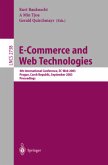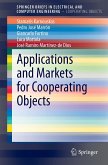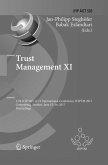With the growth of the Internet and electronics commerce, an unprecedented amount of product and price information is now easily accessible to potential buyers, allowing online shoppers to easily obtain product information and compare vendor prices. The addition of search engines, infomediaries and shopbots further reduces buyer search costs and makes comparison shopping possible on scales never before imagined. Bakos (1998) notes that Internet-base electronic marketplaces leverage information technology to match buyers and sellers and facilitate the exchange of information, goods, services and payments associated with market transactions with increased effectiveness and reduced transaction costs, resulting in more efficient, friction-free markets. This dissertation analyzes several frictions and the possible ameliorating impact of trust-inducing mechanisms in these electronic markets.
Bitte wählen Sie Ihr Anliegen aus.
Rechnungen
Retourenschein anfordern
Bestellstatus
Storno








